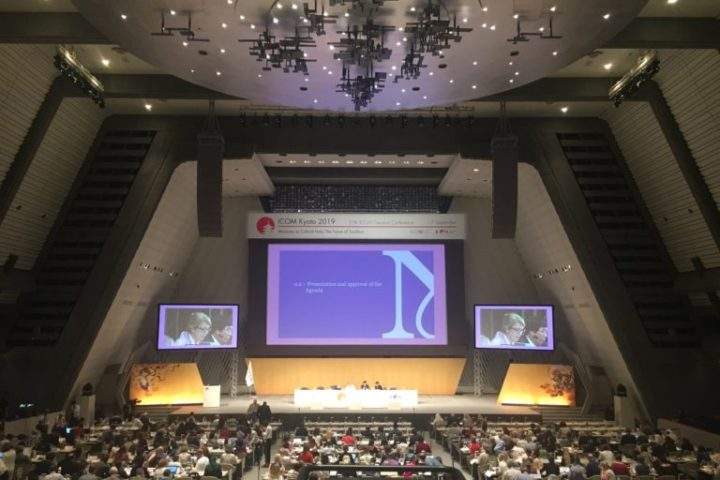The decision on the new definition of the term "museum," which was to be discussed last Sept. 7 in Kyoto at the Extraordinary General Assembly ofICOM (International Council of Museums, the main international body representing museums, founded in 1946), has been postponed. In fact, disagreement over the new definition and too many differences between the various souls of ICOM made it necessary to postpone the vote. “This however is not the end,” said ICOM President Suay Aksoy at the end of the meeting, “but it is just another beginning of the redefinition process.” Aksoy added that “this was one of the most democratic processes in ICOM’s history.”
The meeting saw participants from more than 100 countries, but they were unable to agree after a week of debate in Kyoto: 70 percent of those voting were in favor of postponing the decision. The new definition of the word “museum,” the journey for which began at a conference in Milan in 2016, and which was drafted by the ICOM Committee on the Definition, Prospects and Potential of the Museum, chaired by museologist Jette Sandahl, has heated up tempers because it was deemed too ideological by many. ICOM Italy, on the other hand, simply called it “inadequate to define the museum, which historically has played the role of an institution dedicated to the acquisition, conservation, documentation, research, communication and exhibition of heritage objects, which are not only material and movable objects, but should be considered as testimonies of humanity and its environment.”
Following is the definition that was discussed, “Museums are democratizing, inclusive and polyphonic spaces for critical dialogue about the pasts and the futures. Acknowledging and addressing the conflicts and challenges of the present, they hold artifacts and specimens in trust for society, safeguard diverse memories for future generations and guarantee equal rights and equal access to heritage for all people. Museums are not for profit. They are participatory and transparent, and work in active partnership with and for diverse communities to collect, preserve, research, interpret, exhibit, and enhance understandings of the world, aiming to contribute to human dignity and social justice, global equality and planetary wellbeing” (“Museums are democratized, inclusive and polyphonic spaces for critical dialogue about pasts and futures. Recognizing and addressing the conflicts and challenges of the present, they preserve artifacts and specimens in safekeeping for society, safeguard diverse memories for future generations, and ensure equal rights and equal access to heritage for all people. Museums are nonprofit. They are participatory and transparent and work in active collaboration with and for diverse communities to collect, preserve, research, interpret, exhibit and enhance understanding of the world, aiming to contribute to human dignity and social justice, global equality and planetary well-being.”)
It was not only Italy that came out against the new definition: objections were also raised by delegations from France, Spain and Germany. At present, therefore, the definition of “museum” still remains the one decreed in 2007: “a museum is a permanent, nonprofit institution, at the service of society, and its development, open to the public, which carries out research on the tangible and intangible evidence of man and his environment, acquires, preserves, and communicates it, and specifically exhibits it for purposes of study, education, and enjoyment” (this definition in Italy was transposed in 2014).
Jette Sandahl, speaking at the Kyoto assembly, reported that ICOM had received 269 proposals from 69 nations, submitted in 25 different languages. President Aksoy concluded by reiterating that “discussion continues” and that ICOM will continue to work together with all national and international committees “to talk about the implementation and assimilation of the new ideas that will probably make their appearance in a new definition, which will be a modification of the one that has just been proposed.” Aksoy then invited all ICOM members to actively participate in the discussion.
Pictured: the ICOM assembly in Kyoto.
 |
| New definition of the word "museum": disagreement in ICOM and decision postponed |
Warning: the translation into English of the original Italian article was created using automatic tools. We undertake to review all articles, but we do not guarantee the total absence of inaccuracies in the translation due to the program. You can find the original by clicking on the ITA button. If you find any mistake,please contact us.